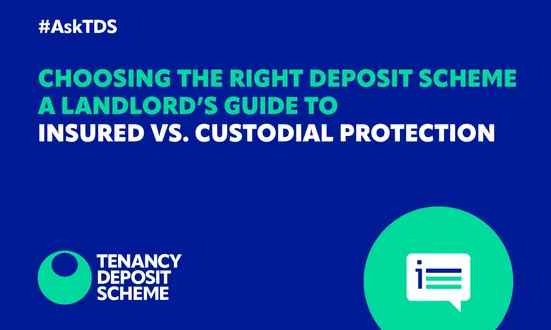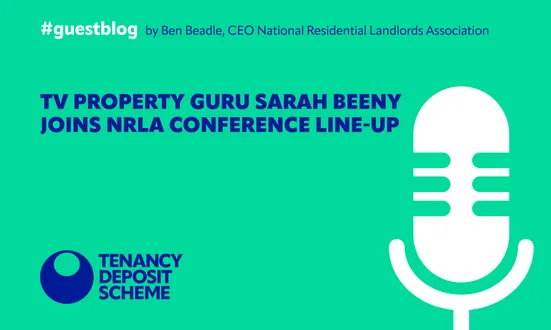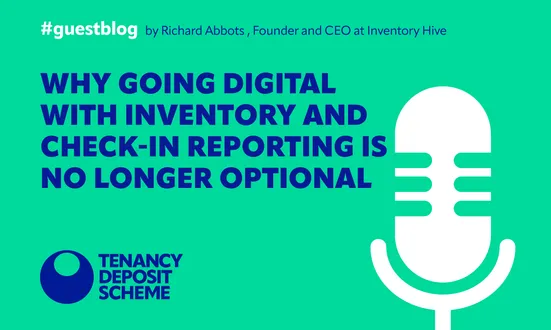We know from recent tenant interviews that many renters feel backed into a corner at the end of their tenancy, with some feeling pressured by landlords or letting agents to accept deductions from their deposit – even when they don’t agree with them. Some tenants are not told they can go to their deposit protection scheme, or that disputing a deduction isn’t worth the hassle.
But here’s the truth: you can challenge unfair deductions, and you should, if something doesn’t feel right.
This article breaks down the deposit dispute process, clears up common myths, and gives you guidance on what to do if you’re feeling pressure to settle for less than you deserve.
1. You don’t have to agree to a deduction just to “get it over with”
It’s natural to want to wrap things up quickly, especially if you need your deposit to pay for your next place. But don’t feel pressured into agreeing to something you don’t believe is fair. Take a breath, ask for the proposed deductions in writing, and take time to consider your options.
You have the right to dispute deductions through the Tenancy Deposit Scheme. Our adjudication process is free, impartial, and designed to make sure both parties are treated fairly.
Read our Guide to Deposit Deductions and Disputes to understand your rights.
2. Common myths about the adjudication process busted
We hear a lot of assumptions about our dispute process, so let’s set the record straight:
“It’ll take too long”
Once all evidence is submitted, adjudication is typically resolved within 28 calendar days. We also offer a self-resolution service, where many cases are resolved even faster. You can make proposals on deductions, respond directly to the other party, I agree with the landlord’s proposal; I want to adjust my proposal; or I want to make an offer i.e. the amount you are willing to accept. You can track your case’s progress and settle your own disputes promptly.
You can chat to the other party via your deposit allocation proposal page, by selecting the Chat now button. You can upload files to the chat. The chat is confidential and will NOT form part of the dispute if the case moves to adjudication.
“TDS always sides with landlords/agents”
Not true! Our adjudicators make decisions based solely on the evidence presented. If a landlord or agent cannot prove the damage or loss, they are unlikely to be awarded anything. Tenants often win full or partial returns where evidence supports their case. The onus is on the agent or landlord to prove the claim is valid, not for the tenant to disprove it. That’s why clear, well-documented evidence is key, regardless of which party is making the claim. Our 10 tips to get your deposit back blog, might help.
“It’ll cost me money”
Adjudication through TDS is completely free for tenants. There are no hidden fees or charges.
“It’s going to be difficult”
We’ve designed the process to be as straightforward as possible. You’ll be guided step-by-step and supported throughout. All you need to do is explain your side of the story and provide any relevant evidence.
For more detail, see our How to raise a dispute guide.
3. The role of inventories and evidence
Disputes are won or lost on evidence. Keeping records throughout your tenancy can make a big difference:
- Take photos at check-in and check-out
- Keep a copy of your tenancy agreement and inventories
- Save email or message threads about any maintenance or issues raised
The more detailed your evidence, the easier it is for our adjudicators to make a fair decision.
4. What to do if you’re being pressured into accepting a deduction
If you feel pressured at the end of your tenancy, here’s what to do:
- Stay calm and don’t agree to anything immediately. Ask for the proposed deductions in writing.
- Contact your deposit protection provider (such as TDS) and begin the dispute process.
- Gather your evidence such as photos from check-in and check-out, copies of the tenancy agreement, email records, and inventory reports.
- Speak to an adviser services like Citizens Advice and Shelter can help you understand your rights.
5. What if your deposit wasn’t protected?
If you discover your deposit wasn’t protected in an approved scheme like TDS, your agent or landlord may have broken the law. In these cases, you can take legal action, and the courts may order your landlord to pay you up to three times the deposit amount as compensation.
You can check whether your deposit is protected using our TDS Deposit Checker.
For advice on what to do if your deposit wasn’t protected, visit Citizens Advice If Your Deposit Wasn’t Protected.
6. Can’t afford to wait for your deposit? Support is available
If you’re hesitant to dispute a deduction because you need your deposit to secure your next home, you may be able to get temporary help from your local council. Many councils offer:
- Discretionary Housing Payments (DHPs)
- Emergency housing loans
- Deposit loan schemes for renters in need
Use this link to Find Your Local Council and ask what support might be available in your area.
The end of a tenancy can feel stressful – especially when money is involved – but you do not have to settle for less than you’re owed. If you disagree with deductions, challenge them. That’s what TDS resolution services are here for.
Other news stories


